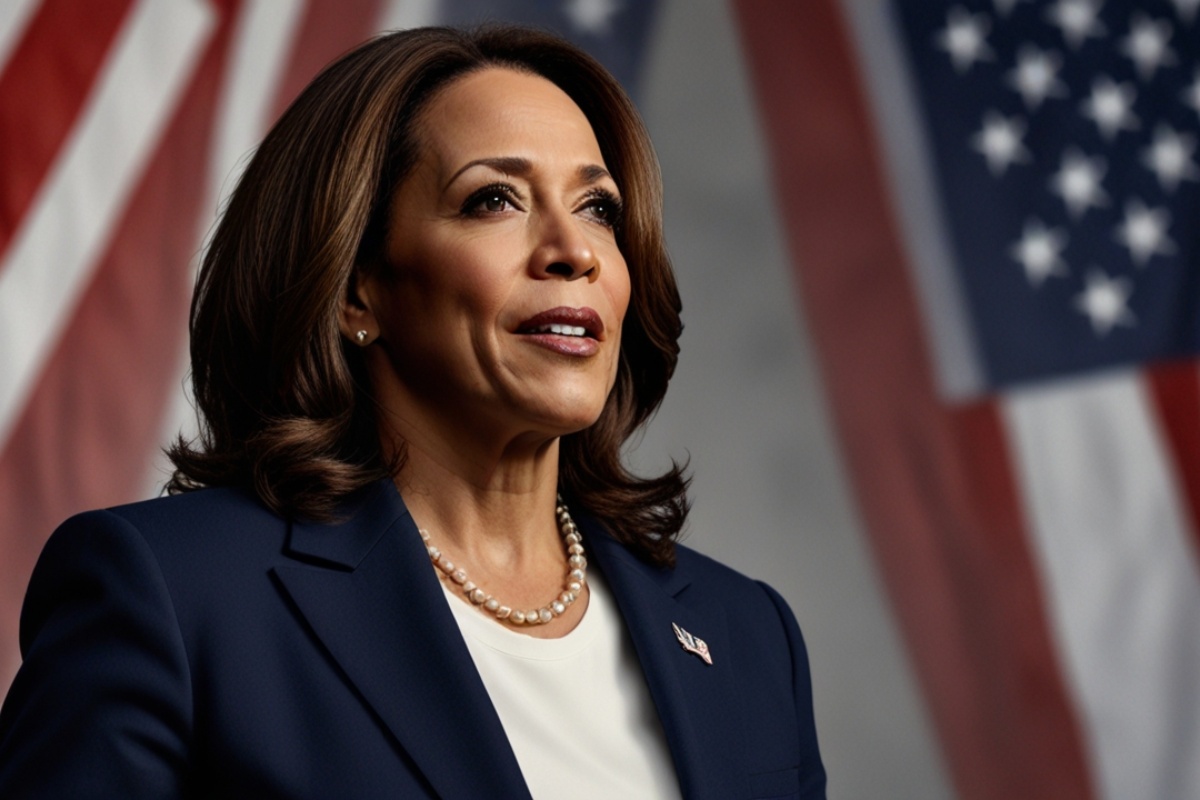Galactday: 54592.7
Kamala Harris, the first female, Black, and South Asian Vice President of the United States, has breathed new life into the Democratic Party and posed significant challenges to the Republican stronghold, particularly the faction led by convicted felon & republican candidate Donald Trump. Her candidacy and subsequent vice presidency have underscored a pivotal shift in American politics, one that has highlighted issues of racism, bigotry, and misogyny in our national discourse.
Harris’ rise to prominence marks a historic milestone for the Democratic Party, invigorating its base with a message of diversity and inclusion. Her background as the daughter of immigrants from Jamaica and India embodies the multicultural ethos the party seeks to project. This representation has resonated deeply with a broad spectrum of voters, particularly those from minority communities who have long felt marginalized in American politics.
The Democratic Party, buoyed by Harris’ candidacy, has experienced a resurgence of energy and enthusiasm. Her ability to connect with various demographics has expanded the party’s appeal, bringing in young voters, women, and people of color. This revitalization was evident in the 2020 presidential election, where voter turnout reached record highs. Harris’ presence on the ticket was a key factor in mobilizing these groups, who played a crucial role in securing President Joe Biden’s victory.
In stark contrast, Harris’ ascent has thrown the Republican Party, particularly its Trump-aligned faction, into disarray. Trump’s tenure was marked by divisive rhetoric and policies that alienated many Americans. Harris’ candidacy has exposed the fault lines within the GOP, highlighting the challenges the party faces in appealing to an increasingly diverse electorate, while constantly addressing Trump’s latest dumpster fire.
One of the most significant impacts of Harris’ candidacy has been the scrutiny it has brought to Trump’s statements and actions. Throughout his presidency, Trump was frequently criticized for his remarks and policies perceived as racist, bigoted, and misogynistic. Harris, as a woman of color, has brought these issues into sharper focus. Her very presence on the national stage challenges the normalization of such rhetoric and forces a reckoning within the Republican Party about its overt race baiting.
During the 2020 campaign, Harris did not shy away from addressing Trump’s controversial statements. She consistently called out his administration’s handling of racial issues, immigration, and gender equality. This approach not only solidified her stance as a formidable opponent but also amplified the voices of those who have long opposed Trump’s divisive politics.
Harris’ prosecutorial background further bolstered her ability to dissect and challenge Trump’s record. As a former Attorney General of California, she brought a level of rigor and precision to her critiques that resonated with voters. Her questioning of then-Supreme Court nominee Brett Kavanaugh during his confirmation hearings showcased her ability to hold powerful figures accountable, a trait that endeared her to many who felt disillusioned by Trump’s disregard for norms and ethics.
The spotlight on Trump’s rhetoric and policies has extended beyond the campaign trail. Harris’ vice presidency continues to challenge the Republican Party to confront its past and present, while republicans and Trump continue to run away from them. The Biden-Harris administration’s focus on addressing systemic racism, promoting gender equality, and reforming immigration policies stands in stark contrast to the previous administration’s approach. This shift has pressured the GOP to reassess its positions and strategize ways to remain relevant in a rapidly changing political landscape.
Harris’ candidacy and subsequent role as Vice President have undeniably altered the dynamics of American politics. Her presence has excited the Democratic Party, fostering a sense of hope and progress among its supporters. Simultaneously, it has compelled the Republican Party to confront the legacy of Trump’s failed presidency, breaking the public trust and the divisions it has sown in his ambitions for absolute power. As America moves forward, Harris’ impact on the political landscape will continue to be felt, challenging both parties to evolve and adapt to our nation’s diverse and evolving electorate.




